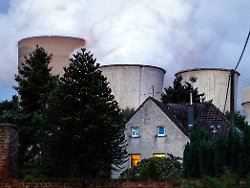Wednesday October 13, 2021
Exploding energy prices
EU proposes measures to countries
Rising energy costs are causing problems for private households and companies in the EU member states. Some countries are calling for coordinated action by the confederation of states, for example in the creation of gas reserves. Today, however, the EU Commission wants to present a kind of toolbox for self-help.
What can EU states do against the ever increasing energy prices? This European Commission is looking for answers today and wants to present a so-called toolbox. The toolbox should contain measures that EU countries can apply nationally without distorting the market. Households and companies are increasingly suffering from the pressure of rising heating and electricity costs.
The wholesale price of natural gas rose around 440 percent between January and October. Gas is used for heating, but also to generate electricity – so fossil fuels also have an impact on how much electricity costs.
In Germany, electricity on the stock exchange has become around 140 percent more expensive since January, 340 percent in Italy and as much as 425 percent in Spain. This is also reflected in household electricity and heating bills – albeit less dramatically than in wholesalers. This is because the consumer price is also determined by taxes, levies and network charges. According to the comparison portal Check24, electricity costs in Germany rose by 4 percent in September compared to the previous year. Consumers paid 33 percent more for heating.
Several Member States intervened at short notice to protect households from high electricity and heating bills. France, for example, has promised a tariff brake and wants to pay poor households 100 euros. Italy wants to spend 3 billion euros to waive some of their electricity and gas bills, for example through tax cuts.
The “Toolbox” is intended to collect and coordinate such and similar measures. For some Member States, however, that is not enough. The French finance minister Bruno Le Maire said last week that energy prices would remain volatile in times of the energy transition. Countries like Spain, France and Greece have called for long-term action at European level. Among other things, the states want to coordinate gas purchases, create joint gas reserves and decouple the price of electricity and gas. Such medium-term measures could be listed in the “Toolbox”. Concrete negotiations on this should not take place until an EU summit on October 21 and 22, as Commission President Ursula von der Leyen said last week.
The Commission is reluctant to take joint action, also because it regards the price increase as temporary. According to the Commission’s estimates, prices should fall again by April at the latest, but to a higher level than in 2020. Basically, the price increase is due to an unusually high demand in the wake of the recovery from the corona pandemic. At the same time there is a lack of supply and the reserves have been emptied because of the cold past winter.
